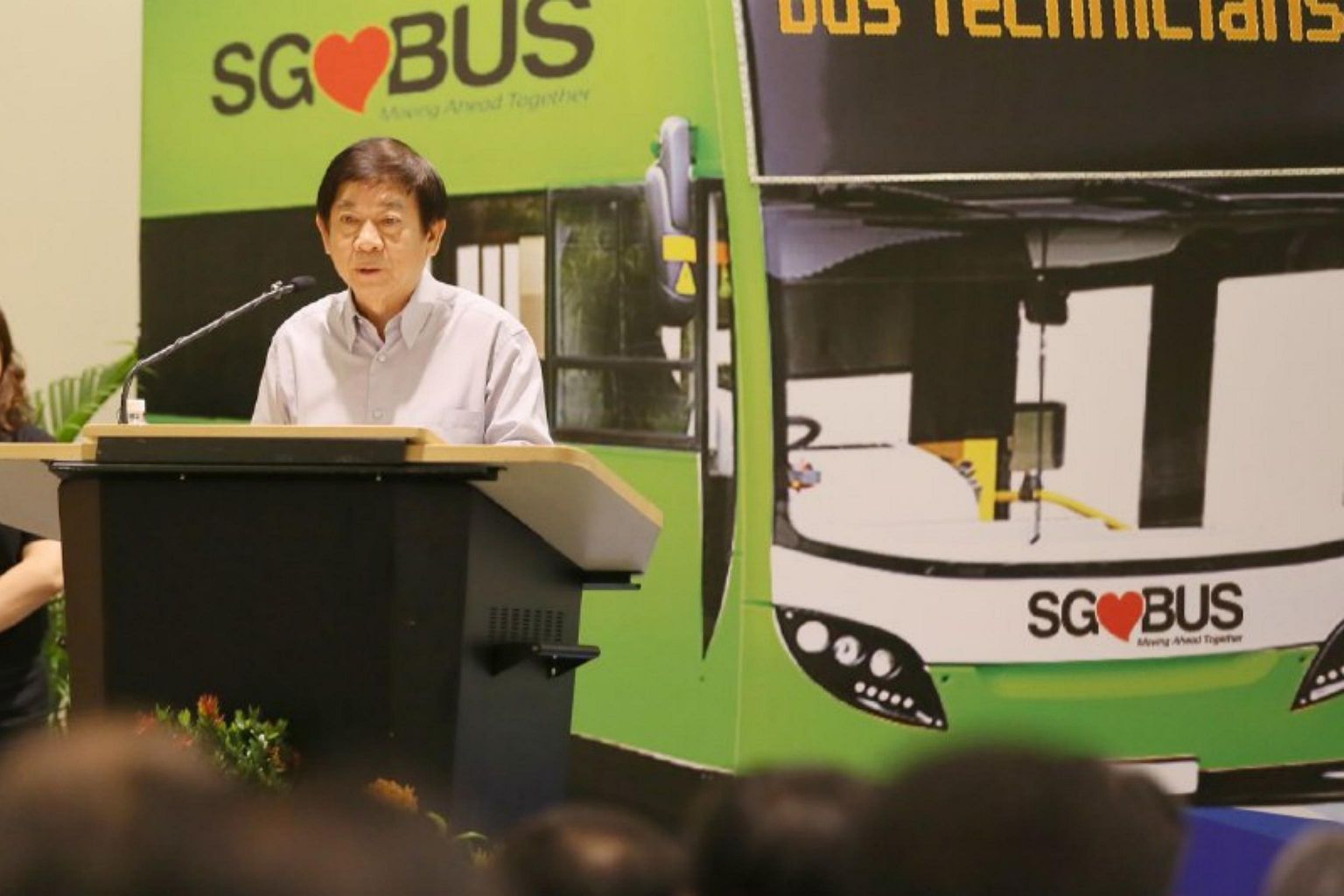Bus services may be re-routed, merged or rationalised to optimise resources: Khaw
Sign up now: Get ST's newsletters delivered to your inbox

Minister for Transport Khaw Boon Wan said on Friday (Sept 29) that the next five years will see Government subsidies for public bus services hit $4 billion as the transition to the bus contracting model is completed.
ST PHOTO: JONATHAN CHOO
Follow topic:
SINGAPORE - Bus services may be re-routed, merged or rationalised especially when new rail lines are opened.
This is to optimise bus resources as ridership grows and ridership patterns evolve, said Minister for Transport Khaw Boon Wan on Friday (Sept 29).
Such measures are not popular among residents along routes which are being adjusted, he said, adding the authorities are "constantly under pressure from local residents" to retain bus services.
"Yet the need for rationalisation is important," he said, adding that maintaining bus services with low ridership numbers would mean a wastage of Government subsidies to the public bus sector.
He added that fares also need to be regularly adjusted so the burden of paying for public transport enhancements does not fall excessively on the shoulders of taxpayers.
Service enhancements for buses - such as shorter waiting times and more comfortable rides - were made possible by large subsidies borne by taxpayers, he noted, with the Government spending $1.1 billion to support the introduction of 1,000 new buses and 80 new bus services as part of the bus service enhancement programme over the past five years.
The next five years will see Government subsidies for public bus services hit $4 billion as the transition to the bus contracting model is completed, noted Mr Khaw.
"While co-payment by taxpayers is appropriate, we have to make sure that the burden on taxpayers does not become excessive," he said.
"As we continue to improve bus services , we hope commuters bear in mind the need for prudence, the need for bus service rationalisation and the need for fare adjustments."
During the budget debates in March, Mr Khaw had already hinted at the possibility of commuters paying higher fares.
Separately, transport operator SBS Transit said in a media release on Friday (Sept 29) that it had made a fare review submission to the Public Transport Council. The PTC will announce the results of the review in the last quarter of this year.
Mr Khaw was speaking at the signing of an agreement - between the Land Transport Authority, the four public bus operators here and stakeholders such as the Institution of Engineers, Singapore - to raise the competencies of bus technicians here.
A new certification for bus technicians, with industry-wide recognition, will be introduced as part of these efforts.
This certification will not only enhance the employability of bus technicians, but also prepare the workforce for emerging technology and create industry-wide benchmarks for the proficiency of technicians.
To meet the needs of a growing public bus sector, more than 1,100 bus technicians and engineers will be needed here by 2030, said Mr Khaw Boon Wan at the event, held at the Devan Nair Institute for Employment and Employability in Jurong East.
Mr Khaw also noted the introduction of new technology in the bus sector here, such as the introduction of diesel-hybrid and electric buses and the move towards web-based diagnostic tools for technicians, describing it as a "quiet revolution" in the industry.
"Indeed, the MOU affirms our partners' full support to up-skill the bus technicians and engineers who play a vital role to keep our buses run smoothly and commuters get to their destinations on time."
Correction note: This story has been edited to provide the correct name of the Institution of Engineers, Singapore (IES). We are sorry for the error.

